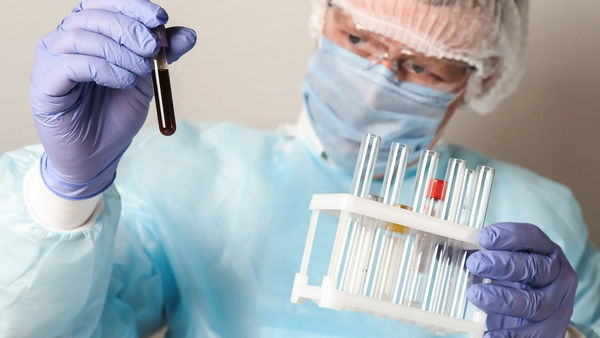Antiviral drug Baricitinib, long used to
treat rheumatoid arthritis has been shown to reduce fatality risk among
critically ill elderly patients with novel coronavirus infection, according to
a study published in the journal Science Advances.
In the observation, the
patients who were given the drugs in multiple hospitals across Italy and Spain
were observed to reduce the risk of dying by 71% compared to patients who had
not taken the same.
The drug was administered
to 83 patients with a median age of 81 suffering from ‘moderate’ to ‘severe’
COVID-19 infection.
Also Read: COVID-19 antibodies persist for 60 days in recovered patients: Study
This medication was
initially identified by scientists at Imperial College London in the UK using
artificial intelligence (AI).
The study also found that
17% of patients who were given the drug died or needed to go on a ventilator,
compared to 35% in the control group who were not given the medication.
The research team claims
that the findings are being followed up with large-scale clinical trials.
“We urgently need to
find more effective treatments for COVID-19 while we wait for a vaccine to
become widely available,” Professor Justin Stebbing, co-lead author of the
study from Imperial College London said as reported by PTI.
“This is one of the
first COVID-19 treatments to go from computer to clinic and laboratory. It was
first identified by an AI algorithm in February, which scanned thousands of
potential drugs that could work against this virus,” he added.
How it works?
When infected with the coronavirus,
called SARS-CoV-2, the body releases various inflammatory molecules, called
chemokines and cytokines.
These molecules serve as
an early warning for the body, telling the immune system about the potential
attack on the body.
However, in the case of
COVID-19, particular cytokine and chemokines, including those called
interleukins and interferons, causes this warning system to spiral out of
control, and trigger a so-called cytokine storm.
This cytokine storm not
only causes significant damage to the body’s organs, but the study revealed it
also helps the virus gain access inside human cells.
The study showed a
particular cytokine, called an interferon, increases the number of receptors,
or docking points, for the virus.
Findings so far
The study revealed that the
drug blocks this process from occurring and so increases survival from
COVID-19.
The findings also
suggested that the drug may help work in two ways;
- Reduce organ damage caused by inflammation
- Blocking the virus
entering human cells.
Also Read: COVID-19 vaccine 94.5% effective: US biotech company Moderna
“This study confirms
what AI predicted, and what we were hearing from patient case reports. For
instance one case involved an 87-year-old severely unwell patient from Foggia,
Italy, who showed rapid improvement after being given the drug, whereas her
husband and son, who did not receive baricitinib, died,” said Professor Volker
Lauschke, co-lead author from Karolinska Institute, Sweden quoted as saying by PTI
“This study has also shone a light on exactly how
this drug may protect us at the cellular level. This helps us understand why
other types of drugs are proving beneficial, or not beneficial, as we as help
identify other treatments which may tackle COVID-19.” Lauschke added







